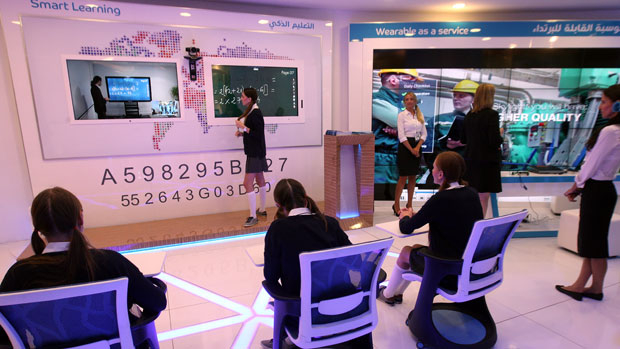
DUBAI: Training the next-generation workforce in the UAE is becoming increasingly important due to the fast-changing technology landscape and closing the skills gap must be a top priority for employers, especially for tech-savvy Millennials, an industry expert said.
“Employers will need to increase their focus on adopting organisational capability to give their workers the right mix of skills in the next three years to enable future growth,” said Sam Al Kharrat, president of SAP Mena.
According to a survey conducted by Oxford Economics and SAP as part of the global “Workforce 2020”, 15 per cent of respondents in the UAE said bridging the learning of the capabilities of the cloud is needed today, more than double, 39 per cent, see cloud as being necessary in three years’ time. However, Al Kharrat said that just 24 per cent of employees in the UAE expect to be proficient in cloud within three years, the report found
“Confluence of cloud, social, mobile and big data are driving new possibilities to respond effectively to rapidly evolving technology landscape and new business scenarios, organisations in UAE must face the challenge of upgrading organisational capabilities and skills to enable future growth,” he said.
The survey showed strong increases in demand for cloud, analytics, mobile technology, and social media skills, with predicted growth of 88 per cent, 58 per cent, and 28 per cent respectively in the next three years.
However, only about 25-35 per cent of employees expect to be proficient in these areas by 2017.
About 44 per cent of employees said their companies provided ample training on needed technology, and less than one-fifth (17 per cent) said they get access to the latest technology available.
“Employers in the UAE do seem to recognise the importance of career development generally, with 55 per cent of employees saying their company provides the right tools to grow and improve job performance, and 45 per cent saying they are offered training programs to develop new skills,” said Nelly Boustany, HR director for SAP Mena.
If the right training skills can be provided, she said that UAE workers seem willing to benefit.
The survey showed that a strong emphasis on career development and training in the UAE, with more than half, 55 per cent, of employees citing supplemental training programs as being important in their career. Employees also value education programmes, cited by 52 per cent, possibly to safeguard their future: 43 per cent of UAE employees were most concerned about their position changing or becoming obsolete.
She said that only 35 per cent of employees in the UAE cited compensation as the most important part of their jobs, compared with 66 per cent of global workers.
“Companies must create a culture of leadership development and continuous, employee-driven learning to accelerate innovation and drive high performance as the economy is growing,” Boustany said.







_resources1_16a30b3fb8b_small.jpg)




